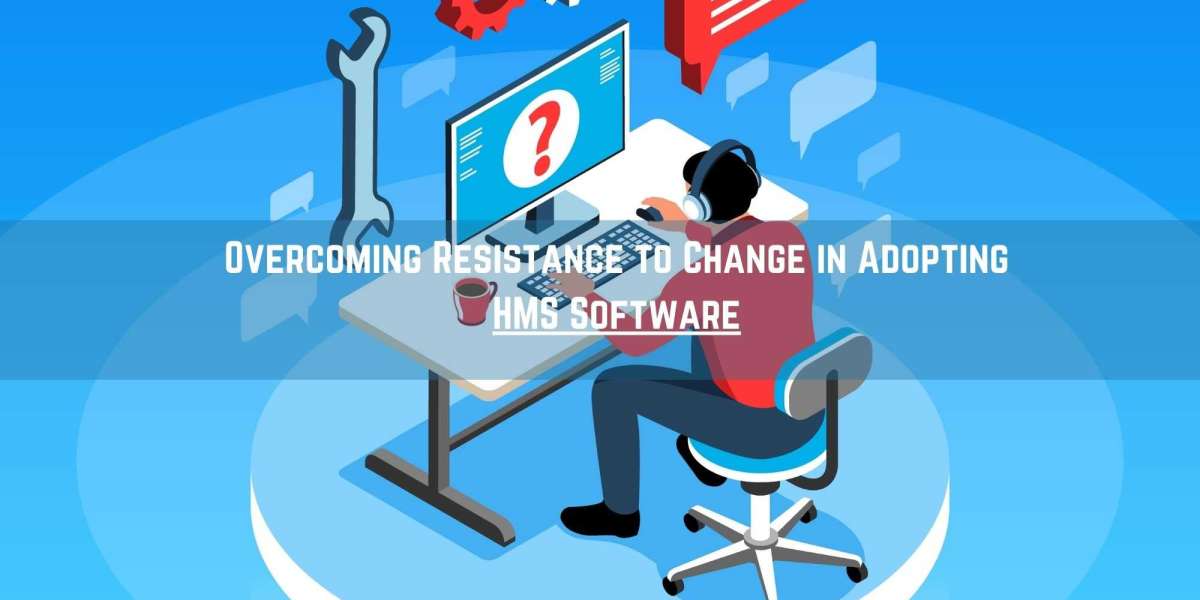In the healthcare industry, the adoption of Hospital Management Software (HMS Software) is crucial for improving patient care, streamlining operations, and enhancing efficiency. However, healthcare organizations often encounter resistance to change when implementing HMS software solutions. Let's explore common reasons for resistance to change and strategies for overcoming them to ensure successful adoption of the best HMS software.
Fear of the Unknown:
Resistance to change often stems from fear of the unknown among healthcare staff. Employees may feel apprehensive about learning new software, adapting to new workflows, or facing uncertainties about how the change will impact their roles and responsibilities.
Solution: To address fear of the unknown, healthcare organizations should provide comprehensive training and support to staff members before and during the implementation of HMS software. Offering hands-on training sessions, user guides, and access to support resources can help alleviate fears and build confidence in using the new software. Additionally, transparent communication about the goals, benefits, and expected outcomes of adopting HMS software can help staff understand the rationale behind the change and its potential impact on patient care and workflow efficiency.
Comfort with Existing Systems:
Healthcare professionals may resist adopting HMS software if they are comfortable with existing systems or processes. They may perceive the new software as disruptive or unnecessary, especially if they have grown accustomed to manual workflows or legacy systems.
Solution: To overcome resistance based on comfort with existing systems, healthcare organizations should emphasize the benefits and advantages of HMS software over traditional methods. Highlighting the capabilities of the best HMS software, such as improved efficiency, enhanced patient care, and access to real-time data, can help staff see the value of adopting the new system. Additionally, involving staff members in the selection process and soliciting their input on desired features and functionalities can increase buy-in and ownership of the change.
Concerns about workload and productivity:
Healthcare staff may resist adopting HMS software due to concerns about increased workloads or perceived disruptions to productivity. They may worry that learning new software or adjusting to new workflows will take time away from patient care responsibilities or add complexity to their daily tasks.
Solution: To address concerns about workload and productivity, healthcare organizations should provide adequate support and resources to staff members during the transition to HMS software. Offering additional training sessions, peer support networks, and access to technical assistance can help staff overcome challenges and adapt to the new system more quickly. Additionally, implementing phased rollout plans and scheduling software updates during slower periods can minimize disruptions to workflow and mitigate concerns about productivity loss.
Lack of leadership support:
Resistance to change can be exacerbated if healthcare staff perceive a lack of support or commitment from leadership. If leaders do not actively champion the adoption of HMS software or fail to allocate sufficient resources to support implementation efforts, staff may question the importance or priority of the change.
Solution: Leadership support is critical for the successful adoption of HMS software. Healthcare leaders should demonstrate their commitment to the change by communicating openly about the organization's vision and goals for adopting HMS software. Providing clear direction, allocating resources, and actively participating in training sessions can show staff that leadership is invested in the success of the initiative. Additionally, recognizing and celebrating milestones and achievements during the implementation process can help build momentum and sustain staff motivation.
In conclusion, overcoming resistance to change in adopting HMS software requires proactive strategies, effective communication, and strong leadership support. By addressing fears of the unknown, highlighting the benefits of the best HMS software, providing support and resources to staff, and demonstrating leadership commitment, healthcare organizations can successfully navigate the transition and reap the rewards of improved patient care and operational efficiency. Embracing change as a strategic investment in the future of healthcare delivery is essential for staying competitive and meeting the evolving needs of patients and providers in today's dynamic healthcare environment.








